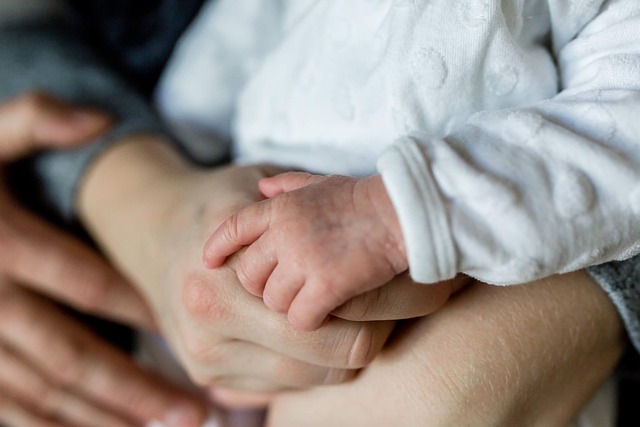Global legal recognition of same-sex families has advanced significantly, providing LGBTQ+ parents with a robust framework for surrogacy and equal benefits as heterosexual couples. Surrogacy agreements are vital for defining rights and responsibilities, protecting parental rights, and ensuring smooth transitions. Legal documentation is crucial to navigate custody arrangements, especially in jurisdictions with specific surrogacy laws. While adoption laws vary, many countries now permit second-parent adoptions, promoting inclusivity and diverse family structures for same-sex parents through surrogacy.
Navigating the legal landscape as an LGBTQ+ intended parent can be complex, but understanding your rights is essential. This comprehensive guide explores the key legal considerations for same-sex families, including recognition of relationships, surrogacy agreements, child custody, and adoption laws. As same-sex parenting gains acceptance, it’s crucial to understand how these factors intertwine, especially when considering surrogacy as an option for building families. By delving into these legal aspects, we aim to empower folks on their journey towards parenthood.
Understanding Legal Recognition of Same-Sex Families
In many countries, legal recognition of same-sex families has evolved significantly over the years, with increasing rights and protections for LGBTQ+ intended parents. This progress is crucial when considering options like surrogacy for same-sex parents, as it ensures a solid legal framework to safeguard their parental rights. Legal recognition typically includes various forms of family structures, such as unmarried couples and same-sex partnerships, providing them with the same benefits and responsibilities as heterosexual married couples.
This advancement in legislation has been instrumental in addressing the unique challenges faced by LGBTQ+ parents, especially when pursuing alternative family-building methods like surrogacy. It offers clarity and security, enabling these families to navigate legal procedures with confidence, ensuring their parental rights are respected and protected throughout the process.
Surrogacy Agreements: Rights and Responsibilities
Surrogacy agreements are a crucial legal document for same-sex parents who are considering surrogacy as a path to building their families. These agreements outline the rights and responsibilities of all parties involved, including the intended parents, surrogate mother, and any medical professionals. They ensure that everyone understands their role and obligations, from the initial matching process to the final transfer of legal custody.
The agreement should clearly state the terms of compensation, the surrogate’s expectations, and the timeline for the process. It also outlines decision-making powers during pregnancy and post-birth, ensuring the rights of both same-sex parents are protected. This is particularly important as it provides a framework to navigate potential legal complexities and ensures a smooth transition for the new family.
Child Custody and Parenting Time for LGBTQ+ Parents
In many jurisdictions, child custody and parenting time arrangements for LGBTQ+ intended parents can be unique and require careful consideration. Same-sex parents, whether they are in a relationship or using surrogacy for same-sex parents, should understand their rights and potential legal challenges. Court decisions often focus on the best interests of the child, looking at factors such as stability, love, and support within the family unit. For LGBTQ+ parents, this may involve navigating complex issues related to parental recognition and legal rights, especially when using alternative family-building methods like surrogacy.
When same-sex parents are involved in a surrogacy arrangement, it’s crucial to have robust legal documentation in place to ensure all parties’ rights are protected. This includes clear contracts that define parental roles, responsibilities, and decision-making authority. In many cases, the surrogate’s jurisdiction may have specific laws governing surrogacy, which can impact the custody and parenting time arrangements for LGBTQ+ parents. Therefore, it is essential to seek legal advice tailored to these unique circumstances to ensure a smooth transition and the best outcomes for all involved.
Adoption Laws and Their Impact on Same-Sex Parental Rights
The legal landscape surrounding adoption and surrogacy for same-sex parents has evolved significantly over the years, with many countries recognizing and protecting their rights. However, variations in adoption laws across jurisdictions can impact the parental rights and responsibilities of LGBTQ+ individuals. In some regions, same-sex couples face stringent regulations that may restrict their ability to adopt or co-parent children, while others have implemented progressive measures to ensure equal opportunities.
Adoption laws often address issues such as joint custody, parental legitimacy, and recognition of foreign adoptions. For same-sex parents considering surrogacy arrangements, understanding the legal validity and recognition of these agreements is crucial. Many countries now permit second-parent adoption or step-parent adoption for LGBTQ+ couples, ensuring that both partners have equal rights and obligations towards any children conceived through alternative reproductive methods. This progress reflects a broader societal shift towards inclusivity and recognition of diverse family structures.
For LGBTQ+ intended parents, navigating the legal landscape of family formation can be complex, but with a thorough understanding of their rights and options, they can create lasting and loving homes. From recognizing same-sex families to ensuring clear surrogacy agreements and securing child custody rights, each step is crucial in establishing a strong foundation for their family. As adoption laws evolve to include LGBTQ+ parents, these future families can look forward to a more inclusive and supportive legal environment, ultimately fostering a vibrant tapestry of diverse family structures. Surrogacy remains a viable path for same-sex parents, offering a chance to welcome children into their homes and hearts.
